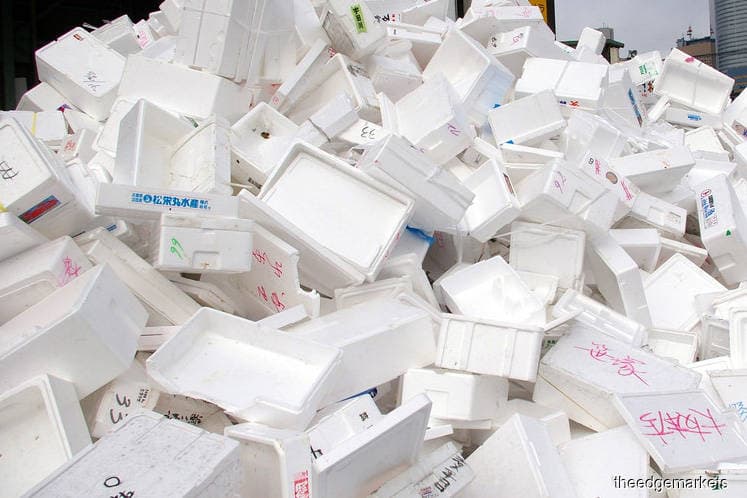
This article first appeared in The Edge Financial Daily on October 2, 2017
PENDANG (Kedah): Malaysia’s biodegradable packaging industry is expected to see further growth as countries around the world and Malaysia boost efforts to reduce the use of plastic and polystyrene materials, said Malaysian Bioeconomy Development Corp (Bioeconomy Corp).
Globally, the eco-friendly packaging market is poised to reach US$177.7 billion next year, up 63.3% from just US$108.8 billion in 2011, said Bioeconomy Corp chief executive officer Dr Mohd Shuhaizam Mohd Zain, citing a study by Transparency Market Research.
As such, the biodegradable packaging industry is one sector that Bioeconomy Corp is seeing much potential in, one in which Malaysian farmers and the rural communities can partake to help develop.
Hence the agency, which is under the purview of the ministry of science, technology and innovation (Mosti), is encouraging the rural community to take part in a rice straw project to enhance the growth of high-value biodegradable products in Malaysia.
Overseen by Bioeconomy Corp, the project is born from a 10-year agreement signed between a BioNexus Status company, Free The Seed Sdn Bhd (FTS), and Pertubuhan Peladang Kawasan Pendang Selatan (PPKPS) here in Kedah recently, which was witnessed by Mohd Shuhaizam.
Under the agreement, farmers from PPKPS will supply 57,000 tonnes of rice straw from their 12 estates to FTS, which will process the rice straw using its patented enzyme technology to produce biodegradable packaging products.
“The project is estimated to be worth over RM7 million annually, [generating products] for locals and exports to markets like the Netherlands, Germany and the UK,” said Mosti Minister Datuk Seri Panglima Wilfred Madius Tangau.
Wilfred said FTS’ patented enzyme technology allows the company to produce about 60 million units of packaging products a year.
“With the use of this technology, FTS is able to transform paddy residues into various forms of highly demanded packaging products for the food industry, hospital use and packaging of manufactured goods.
“This innovation is a good example of science, technology, and innovation discovery that can be applied to the industry, subsequently generating income and jobs,” he said.
Bioeconomy Corp was set up to provide support, facilitation and advisory services for bio-based companies in Malaysia. The agency awards BioNexus Status to international and Malaysian bio-based companies that are qualified for fiscal incentives, grants, and guarantees it administers.
The rice straw project is placed under the agency’s Bioeconomy Community Development Programme, which emphasises the development of rural farmers and communities to promote inclusivity in Malaysia.
As of July this year, some 35 projects under the Bioeconomy Community Development Programme had been implemented, involving 2,732 farmers, and created an additional average monthly income of RM4,500 per farmer. By 2020, about 2,621 more farmers would be targeted to be nurtured under the programme.
In addition, Bioeconomy Corp introduced the Bioeconomy Transformation Programme (BTP) for the private sector in October 2012, to help channel and maximise commercial opportunities in bio-based industries in Malaysia.
The BTP is targeted to contribute some RM48 billion to gross national income (GNI), promote 170,000 job opportunities and attract RM50 billion in investments by 2020.
As of July, 73 BTP projects had been implemented — 34 biotech industrial projects, 31 agricultural biotech projects, and eight healthcare biotech projects.
These projects are expected to generate GNI of some RM6.33 billion, create 27,630 job opportunities, and account for RM19.08 billion investments by 2020.